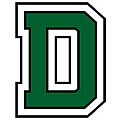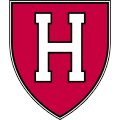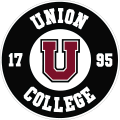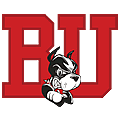There was one thing that people were saying during the formation of two new "super conferences" in the west during the recent reconfiguration of the college hockey landscape: someone's got to be last place in these leagues. In the Big Ten, Penn State was expected to take that role as the new program on the block, and they did just that. In the NCHC, there was no "new program," and it was certain that some team that had been fairly successful in recent years was going to find themselves in the basement. It ended up being Miami.
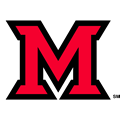 Miami
Miami
Nickname: RedHawks
Location: Oxford, OH
Founded: 1809
Conference: NCHC
National Championships: 0
Last NCAA Appearance: 2013
Last Frozen Four: 2010
Coach: Enrico Blasi (16th season)
2013-14 Record: 15-20-3 (6-17-1-1 NCHC, 8th place)
Series: Miami leads, 5-1-0
First Game: December 28, 1984 (Troy, NY)
Last RPI win: December 28, 1984 (Troy, NY)
Last MU win: December 14, 2008 (Oxford, OH)
2014-15 games: January 2-3, 2015 (Troy, NY)
Key players: F Blake Coleman, sr.; F Austin Czarnik, sr.; F Jimmy Mullin, sr.; F Cody Murphy, sr.; D Ben Paulides, sr.; F Alex Wideman, sr.; F Riley Barber, jr.; D Matthew Caito, jr.; F Sean Kuraly, jr.; G Ryan McKay, jr.; F Kevin Morris, jr.; F Justin Greenberg, so.; D Chris Joyaux, so.; D Matt Joyaux, so.; F Anthony Louis, so.; D Louis Belpedio, fr.
When compared to most of the strongest teams in the nation, Miami is a relative newcomer to the world of college hockey. Their varsity program came into being in 1978, when the club team that had been in existence for 14 years made the move to the big time as a Division I independent.
Under the tutelage of head coach Steve Cady, the Redskins played a largely club-based schedule for their first two years in Division I and did fairly well in that endeavor, kicking off their varsity era with a pair of 20-win seasons as independents before joining the then-fledgling CCHA in 1980, just a year before the conference became a heavy-hitter with the addition of Michigan and Michigan State.
The Redskins didn't fare nearly as well with a steady diet of established Division I teams. Cady's 1983 team managed a winning season, but Miami would end up enduring 10 losing years in their first 11 in the CCHA, eight of which saw the Redskins finishing last or next-to-last in the conference. Cady departed in 1985, his replacement, Bill Davidge, managed just 39 wins in four seasons against 111 losses.
The man who took over in 1989 had an equally inauspicious start, racking up a record of 17-53-7 in his first two seasons in Oxford, which included an especially dreadful 1991 campaign in which the Redskins amassed only 9 points in CCHA play, finishing 11 points behind next-to-last Illinois-Chicago. But that's where the terrible seasons ended for Miami and their soon to be well-known coach: George Gwozdecky.
The turnaround got underway the following season, as the Redskins finished with their first winning season in nine years at 18-16-6, accompanied by a fifth-place showing, the team's best ever finish in the CCHA to that point. In 1993, just two years removed from a below-the-basement finish, the Redskins had completed the worst-to-first turnaround, putting together an amazing 27-9-5 record, clinching the school's first ever CCHA regular season championship, and earning the school's first ever NCAA tournament bid. Miami fell to Wisconsin, their coach's alma mater, 3-1, but the program was certainly on the rise at that point.
After a second straight 20-win season in 1994, Gwozdecky left Miami to become the head coach at Denver. To replace him, the Redskins selected Mark Mazzoleni, who had led Wisconsin-Stevens Point to a Division III dynasty in the late 1980s with three consecutive national championships. Unfortunately, Mazzoleni was unable to translate his D-III success or the strong seasons Gwozdecky had built at Miami into continued success. 1995 was a step back for the Redskins, and 1996 saw the team picking up just 10 wins.
Mazzoleni's best season at Miami was certainly in 1997, when the team bounced back up into the top reaches of the CCHA with a second-place finish and a second-ever NCAA bid, but once again national glory was elusive as the Redskins - in their final game with the moniker - lost to Cornell, 4-2. The school adopted its present day RedHawks name for the 1997-98 season.
Another middling season in 1998 was followed by another dismal year in 1999 as Miami again fell off the CCHA radar. Following that year, Mazzoleni left Miami to take over the head coaching job at Harvard in late July, leaving the RedHawks scrambling to find a replacement in time for the upcoming season. They found former team captain Enrico Blasi, who'd played under Gwozdecky as a part of the 1993 NCAA team and captained the 1994 squad. At the time, he was the youngest head coach in the nation, and he was about to become the most successful at the school.
Blasi certainly did the best he could with what he had early in his coaching career. After two losing campaigns in his first three seasons, Blasi started the RedHawks off on a path to heights of college hockey, although the road was certainly rocky early on. 2003 saw Miami earning 21 victories, and the following year Blasi's charges finished 2nd in the CCHA, just a point behind ever-dominant Michigan. It was enough for a third-ever NCAA bid, but this one ended the same as the first two, this time with Miami losing to Gwozdecky and Denver, 3-2.
The 2004 appearance, however, was the first in what would become regular NCAA appearances as Miami established itself as one of the leading programs in the nation under Blasi. The RedHawks had an unsatisfying losing year immediately following the loss to Denver, but a 1st place finish in the CCHA in 2006, their first since 1993, touched off eight consecutive seasons of NCAA bids.
2006 ended with a 5-0 loss to Boston College, but in 2007, on their fifth try, Miami finally broke through with a 2-1 win over New Hampshire - in Manchester, no less. The Frozen Four was not in the offing that year as BC again crushed Miami's hopes with a shutout, 4-0. BC again blocked the Frozen Four in 2008 with a 4-3 overtime victory in the Northeast final in Worcester.
2009 brought another breakthrough, and in a big way that almost sent the RedHawks directly to the top. Finally sent west after three straight appearances in the Northeast regional (where, ironically, Boston College
didn't lurk that season), Miami dispatched Gwozdecky and the Pioneers in the first round, then earned their first Frozen Four appearance by defeating Minnesota-Duluth, the regional favorite in Minneapolis, 2-1. At the Frozen Four in Washington, the RedHawks took down a Cinderella Bemidji State team, 4-1, to earn a showdown for the national championship against Boston University.
The moment simultaneously became the proudest and the most heartwrenching moment in Miami's hockey history. As the third period started, the teams were tied 1-1. Miami took the lead with 7:29 left, and gave themselves an insurance tally with just 4:08 left on the clock, making it 3-1. It looked as though the RedHawks were about to be crowned champions for the very first time. But BU wasn't finished. With the goaltender pulled, the Terriers got a goal back with 59.5 seconds left, and then equalized with the extra attacker as Miami was 17.4 seconds away from celebrating the title. The crushing collapse was eventually completed just under 12 minutes into overtime as BU scored again to win the national championship, 4-3.
Arguably, Miami's 2010 campaign was even stronger than the one that saw them get so tantalizingly close to winning it all. They absolutely stomped the competition in the CCHA, winning the regular season crown by 20 points with a 21-2-5 overall record in the conference. While the ever-elusive CCHA championship after a semifinal loss to Michigan, the RedHawks still looked primed to do some damage in the NCAA tournament. Avenging their CCHA loss with a double overtime victory over the Wolverines, Miami reached the Frozen Four for the second straight year, but found their NCAA nemesis, Boston College, waiting for them there, and the script remained the same. The Eagles pummeled the RedHawks 7-1.
In 2011, Miami finally picked up two very important pieces of hardware: their very first tournament success in claiming the CCHA championship after so many years of coming up just short. The RedHawks bumped off Western Michigan 5-2, but fell in the NCAAs to New Hampshire (again, in Manchester). That second bit of hardware was an individual nod, as Andy Miele won Miami's very first Hobey Baker Award.
With the CCHA about to take a big hit in prestige as the Big Ten schools departed, Miami was part of a core group of programs that set up the new NCHC - but they still had noise to make in the CCHA. 2013 saw Miami pick up the final regular-season championship, their fourth, but it came with a semifinal loss to Michigan in their last shot at the CCHA title. Their eighth straight NCAA appearance ended just shy of the Frozen Four after falling to St. Cloud State, 4-1.
Last year, the first in the NCHC's existence, Miami didn't look like they were going to be one of the struggling teams early on. They kicked off their season with 6-2 and 6-3 thrashings of former conference-mate Ohio State, then went 5-3-1 in their next nine outings. But once the thick of the NCHC schedule got started, defense became much harder to come by.
It was almost like flipping a switch. After a 2-0 shutout of Wisconsin made the RedHawks 7-3-1 on the season, the next night's 3-2 loss was the first six consecutive outings in which Miami gave up three or more goals. After the New Year, 11 of their next 13 games, all in-conference, featured the same defensive showing. At the same time, the offense dried up. Only four of those games saw the RedHawks lighting the lamp three or more times.
But even after a last place finish, the RedHawks managed to complete the season on a high-note. They won their last game of the regular season at Denver, then shocked the conference by sweeping first-place St. Cloud State in the quarterfinals, and then taking down second-place North Dakota 3-0 in the semifinals to earn a highly improbable shot at extending their NCAA streak to nine seasons. It was not to be as equally surprising Denver (who'd finished seventh out of nine) managed a 4-3 victory, but Miami definitely went down fighting as they nearly pulled the same trick BU had laid on them in 2009 in the national championship game, scoring an extra attacker goal late to pull within one, but they simply couldn't find the second.
There was one element that was not shocking at all about Miami's struggles - they were very young last year, with only one senior dressing all season. The RedHawks return five players from last season that notched 12 or more goals last season, four of which will be juniors and seniors - Czarnik, Barber, Kuraly, and Coleman. Meanwhile, a blue line contingent that had only one player last year who wasn't a freshman or sophomore last season (Paulides) will be a year older and a year wiser. They add to that a solid freshman in Belpedio, a third-round draft selection of the Minnesota Wild who faced the Engineers last season with the US Under-18 team.
McKay was part of a freshman troika in 2012-13 that were not just the best freshman goaltenders in the nation, they were three of the best goaltenders period - the other two being UMass-Lowell's Connor Hellebuyck and RPI's Jason Kasdorf. Unfortunately, of that group, only Hellebuyck was able to repeat his sensational numbers last year. Kasdorf, of course, missed basically the entire season due to shoulder surgery, and McKay saw a significant statistical drop-off, giving up almost a goal and a half per game more last year than in his freshman year, and seeing his save percentage drop from nearly 95% to about 91%.
The numbers would indicate that although Miami's team defense was not as strong last year as it was in 2013, McKay also was not as strong as he was as a freshman. Still, it does take a serious amount of talent to put up a 1.39 GAA across a whole season of work - he split time with classmate Jay Williams as a freshman and had about half-a-goal per game less in GAA.
Miami's most recent two-year series with RPI came in 2007-08 and 2008-09, with all four games won by the RedHawks by multiple goals, outscoring the Engineers 22-6 in those games. The gap between the programs at the time was pretty wide, though. Miami isn't quite on the level they were back then, and RPI is an improved team from the ones that struggled through the late 2000s. The key matchup this year is going to be between Miami's outstanding offensive ability and RPI's decent defensive front. If McKay and Kasdorf can put on the show that they would have commanded as freshmen, it should be an exciting pair of games in Troy this season, and it'll put some pressure on the Engineer offense to perform.
